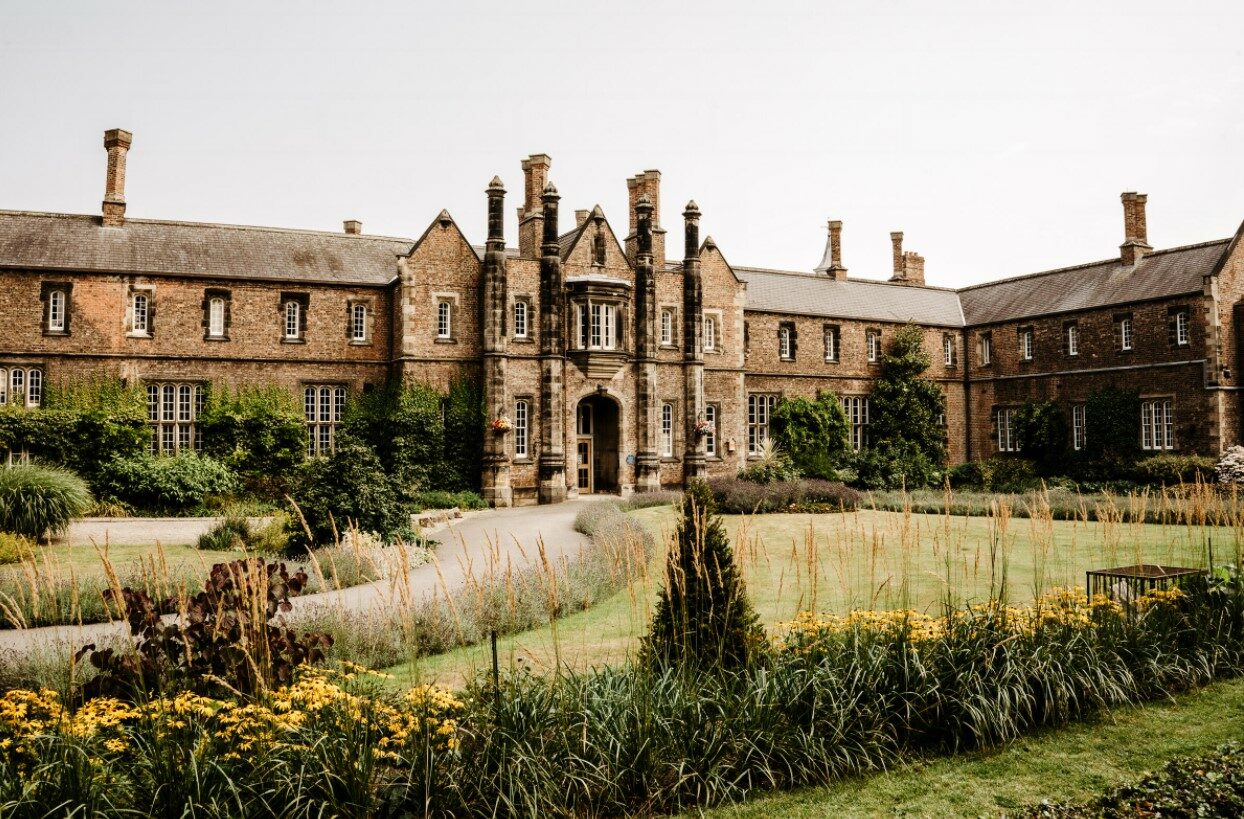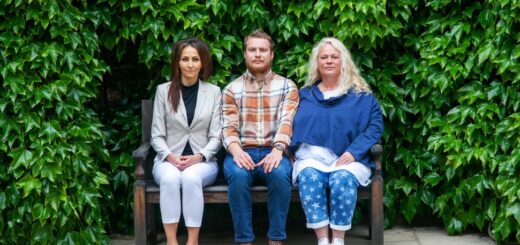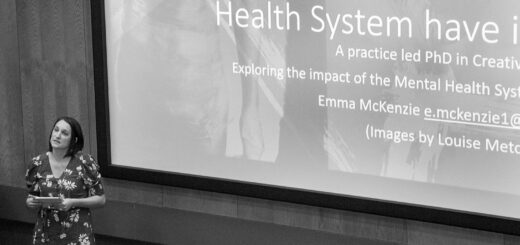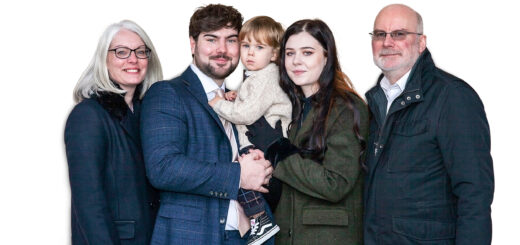The Inspire Project: Charlotte O’Brien
April 12, 2023
Inspire Portrait and Interview by Ginger Liu
INSPIRE seeks to capture photographic portraits of the York St John’s PGR community, accompanied by short interviews about who inspired you on your postgraduate journey.
Tell me about your background and what you do if you work, the area you live in, etc.
I am a trainee counselling psychologist and a Bristol girl born and bred, now living in Leeds with my two lovely teenagers. After my undergraduate degree in Psychology I trained as a psychotherapist working on placement with a number of local charities such as MIND and Wellspring Therapy in Harrogate.
As a result of my own life experiences and having had my own personal therapy, I have developed a passion for working with individuals experiencing trauma and experiencing symptoms of distress in their body. Most recently I have been working on placement as a trainee counselling psychologist in the NHS with Older Adults, in the Young Offenders Institution with 15-18 year-old boys and with children and adults in a private practice setting.

What is your Ph.D. about, what year, and why York SJ?
I am a third year student and my doctoral thesis focusses on Refugees, Asylum Seekers and Practitioners’ Perspectives of Embodied Trauma. It seeks to define the novel term of embodied trauma and uses creative body mapping exercises to assist displaced individuals in exploring and defining where they experience distress in their bodies as a result of the refuge and asylum seeking process. I enjoy bringing creative methods into my research and also asked participants to bring a significant artefact with them which symbolised their experiences to help build rapport, engage in the research process and elicit their experiences.
I am particularly interested in understanding transcultural expressions of distress, and experiences that can get ‘lost in translation’. My research offers the use of interpreters to all participants to help them explain their experiences in their mother tongue, and all the research materials are accessible to everyone to all without any level of education or technology savvy required to take part.
I am passionate about social justice, inclusive, accessible, compassionate and trauma-informed research methods, and advocating alongside under-represented groups for access to appropriate, culturally informed and trauma informed therapeutic services. I am also looking at how we can make health care services more accessible to all by using trauma screening tools such as body mapping instead of verbal questionnaires which can be hard to understand cross-culturally.
What is your PGR journey? What steps did you make, hardships, hurdles, dreams, and reasons why you wanted to be a PGR?
For me this journey as a busy mum has been a lot of planning and juggling, but we have had a lot of fun along the way working together as a team. I have really enjoyed showing my children that you can dream big and keep learning, growing and changing even at my age! I have a passion to keep working towards social justice and access to therapeutic services for all who need them, and to keep talking to people about mental health and where they can get support. For me my PGR journey has been a dream as it is getting me one step closer to doing my part to help to learn about and provide accessible, culturally informed care, and advocate for transcultural approaches to research and training.
Who inspired you to study for PGR and why?
Professor Divine Charura has been a huge inspiration for me as a passionate advocate for social justice, transcultural approaches to teaching and psychological therapies, and as a supportive and encouraging supervisor modelling power with, not over others. He has helped me find my own voice and actively supported our research projects together with kindness, energy and dedication.
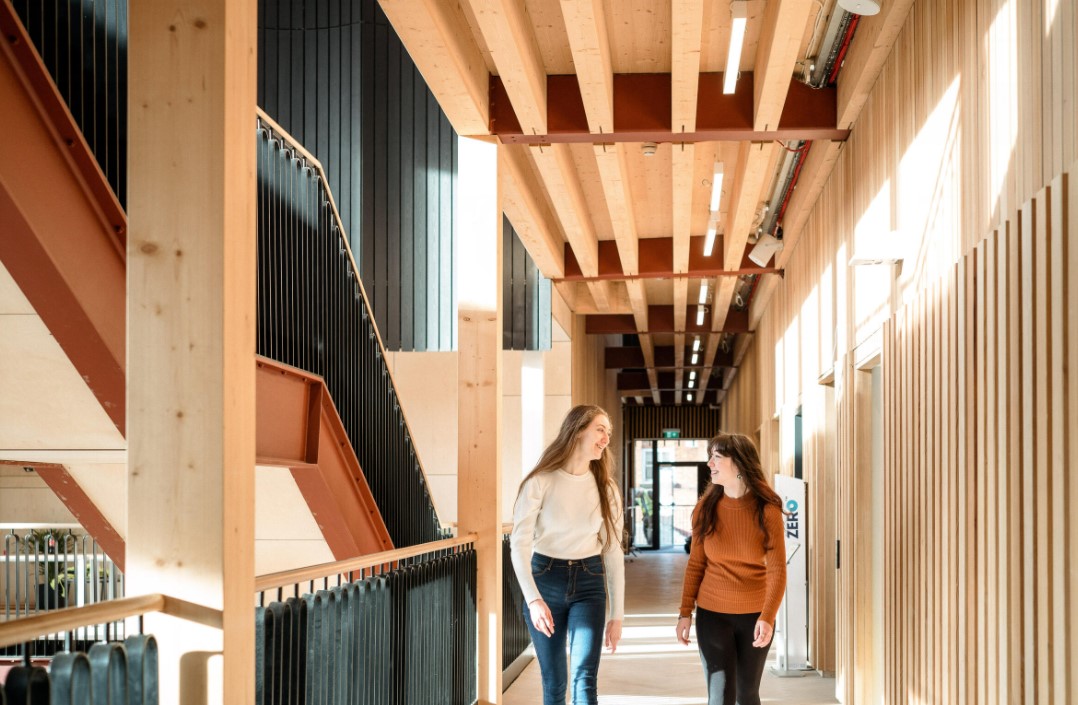
How important is it to have inspiration to drive your PGR?
Having passion and inspiration is pivotal to everything I do. Not only does it make you want to get up in the morning and write and study hard, but it drives you forward with the hope that your research, even in some small way, will make a difference.
I would just say go for it.
What would you say to others who are thinking about PGR studies but have doubts about their personal abilities or confidence, etc?
I would just say go for it. Everyone has something to give to their own field of research. We are all experts in our own way and of our own experiences. PGR studies are a hugely growthful process and you’ll be surprised at how much your confidence can grow throughout the course with a supportive team around you at St John’s.
How would you like to thank your inspirations in words for this blog post?
I would like to thank the strong women in my family who have showed me that you can do anything you set your mind to, to my children for their love, support and fun, and to the amazing academic team and peers on the counselling doctorate course who have been so incredibly nurturing, passionate and supportive, and for truly modelling what they teach.

